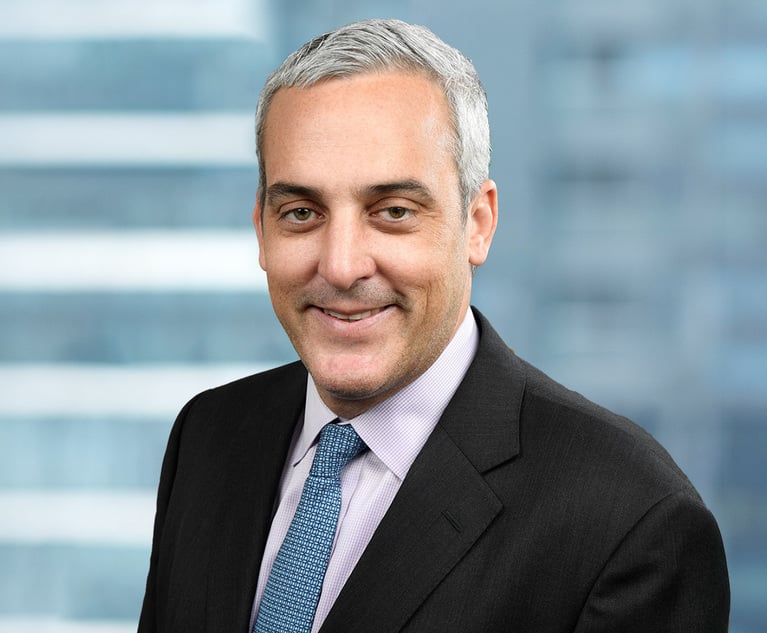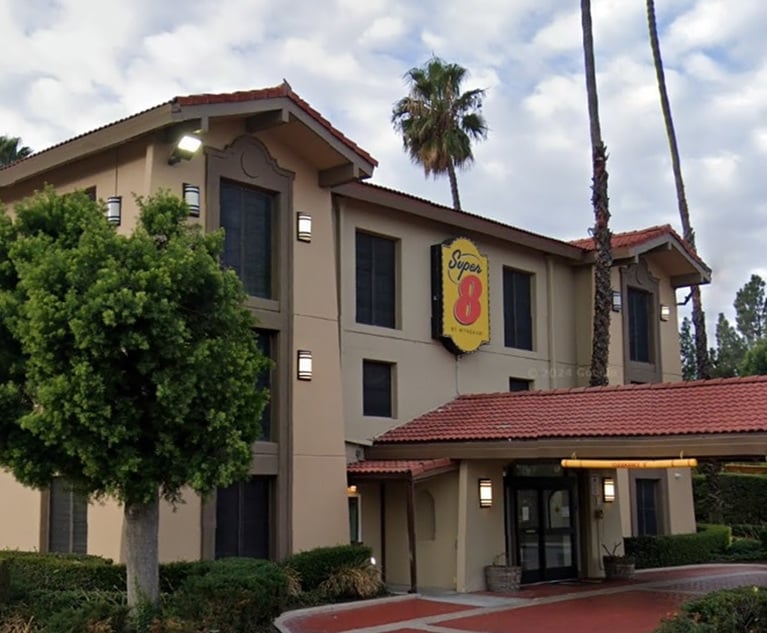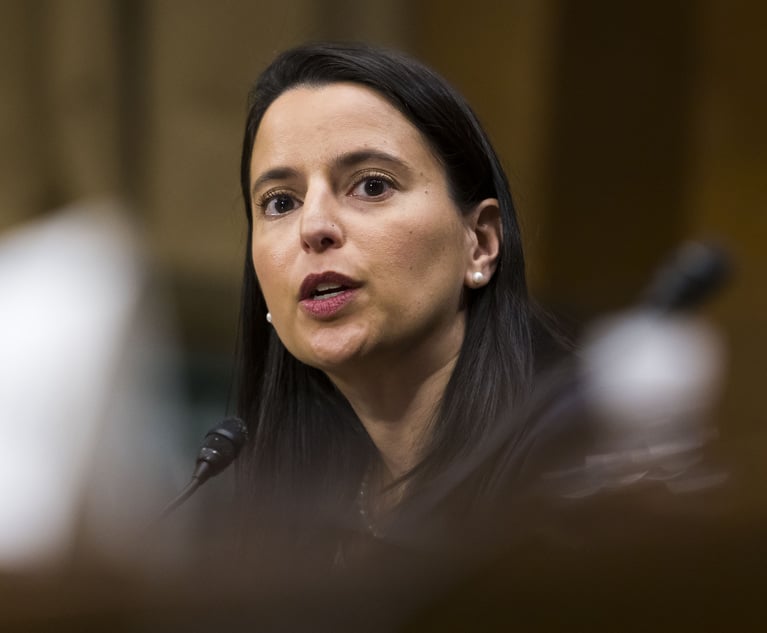State Bar Reorg Puts Spotlight on Obscure Legal Services Commission With $60M to Hand Out
Legal aid groups have urged bar officials to slow down any consideration of overhauling the trust fund commission's mission or of axing it altogether. That pushback may have worked.
August 13, 2018 at 07:22 PM
4 minute read
 Photo: Bigstock
Photo: Bigstock
For years, a state bar committee charged with recommending where millions of dollars in legal aid money for the poor should go has done its work in relative obscurity.
The 24-member Legal Services Trust Fund Commission, composed of volunteers, including 15 lawyers and three bench officers, works with bar staff to scrutinize organizations seeking a share of funds generated by Interest on Lawyers' Trust Accounts, state funds and donations.
The money is never enough to meet the demand for civil legal services for the indigent, and the commission's work and recommendations, approved annually by the board of trustees, has never received much scrutiny—until now.
After the Legislature and critics pushed the state bar to drop its professional advocacy role and become a more traditional regulatory agency, bar leaders are re-evaluating whether they should rely so heavily on the 15 volunteer committees that perform some facet of bar work, including the trust fund commission. One proposal under consideration would eliminate the commission and put the grant-handling duties entirely in the hands of bar staff and the board of trustees.
“This is an area where I think the board has been absent,” board president Michael Colantuono said at a recent trustees' hearing. “I think it's too important an area for us to continue to be absent.”
That idea—eliminating the committee-middleman—worries some in the legal aid community who say the work is too complex and time-consuming to foist on trustees who are focused on an array of other issues.
The commission “is really necessary for meaningful oversight,” said Salena Copeland, executive director for the Legal Aid Association of California.
Legal aid groups have urged bar officials to slow down any consideration of overhauling the trust fund commission's mission or of axing it altogether. That pushback may have worked. Original plans to have the board of trustees consider action in September have been dropped “pending a re-engagement with stakeholders” this fall.
“We think that's an incredibly smart decision,” Copeland said.
At stake is the direction of approximately $60 million in grants, a number recently boosted by limited-term funds tied to banks' settlements over mortgage foreclosure litigation. Colantuono said at a July meeting of trustees that legal aid groups should have “a sufficient voice” in debating the commission's future so “that they do not feel compelled” to complain to the Legislature.
But Colantuono also warned against creating the appearance that legal aid groups that receive grants play a role influencing how the commission makes spending recommendations.
“There needs to be not only the appearance but the substance of disinterested oversight,” he said. “Because as much as I love all those folks and admire the work they do, they have very much at stake in these discussions, and they cannot be or appear to” have conflicts of interest.
The bar's board of trustees appoints 14 of the commission's members; the chief justice appoints the rest. Three non-voting judges also serve. Members can't be employees or board members of current grant recipients. More than 70 organizations around the state received funding this year, including nonprofits handling workplace, housing, disability rights and health care legal issues.
Trust fund commission co-chair Richard Reinis, a partner at Thompson Coburn, said the panel had not taken a position yet on any board proposal. He had not heard Colantuono's remarks. Reinis estimated that he spends 50 to 75 hours a year working on the “granular” grant-making process for the bar commission.
“It took me a few years to learn what it is that the commission does,” said Reinis, who was appointed in 2013 by Chief Justice Tani Cantil-Sakauye. “I was really surprised by the learning curve.”
An ad hoc committee of the trust fund commission is scheduled to meet by phone Wednesday to discuss the state bar's proposals. A separate bar committee will consider related issues Friday in a conference call.
This content has been archived. It is available through our partners, LexisNexis® and Bloomberg Law.
To view this content, please continue to their sites.
Not a Lexis Subscriber?
Subscribe Now
Not a Bloomberg Law Subscriber?
Subscribe Now
NOT FOR REPRINT
© 2025 ALM Global, LLC, All Rights Reserved. Request academic re-use from www.copyright.com. All other uses, submit a request to [email protected]. For more information visit Asset & Logo Licensing.
You Might Like
View All
Latham Adds Former Treasury Department Lawyer for Cross-Border Deal Guidance
2 minute read
Law Firms Expand Scope of Immigration Expertise Amid Blitz of Trump Orders
6 minute read
Trending Stories
- 1Critical Mass With Law.com's Amanda Bronstad: 700+ Residents Near Ohio Derailment File New Suit, Is the FAA to Blame For Last Month's Air Disasters?
- 2Law Journal Column on Marital Residence Sales in Pending Divorces Puts 'Misplaced' Reliance on Two Cases
- 3A Message to the Community: Meeting the Moment in 2025
- 4Ex-Prosecutor Denies on Witness Stand That She Tried to Protect Ahmaud Arbery's Killers
- 5Latham's Lateral Hiring Picks Up Steam, With Firm Adding Simpson Practice Head, Private Equity GC
Who Got The Work
J. Brugh Lower of Gibbons has entered an appearance for industrial equipment supplier Devco Corporation in a pending trademark infringement lawsuit. The suit, accusing the defendant of selling knock-off Graco products, was filed Dec. 18 in New Jersey District Court by Rivkin Radler on behalf of Graco Inc. and Graco Minnesota. The case, assigned to U.S. District Judge Zahid N. Quraishi, is 3:24-cv-11294, Graco Inc. et al v. Devco Corporation.
Who Got The Work
Rebecca Maller-Stein and Kent A. Yalowitz of Arnold & Porter Kaye Scholer have entered their appearances for Hanaco Venture Capital and its executives, Lior Prosor and David Frankel, in a pending securities lawsuit. The action, filed on Dec. 24 in New York Southern District Court by Zell, Aron & Co. on behalf of Goldeneye Advisors, accuses the defendants of negligently and fraudulently managing the plaintiff's $1 million investment. The case, assigned to U.S. District Judge Vernon S. Broderick, is 1:24-cv-09918, Goldeneye Advisors, LLC v. Hanaco Venture Capital, Ltd. et al.
Who Got The Work
Attorneys from A&O Shearman has stepped in as defense counsel for Toronto-Dominion Bank and other defendants in a pending securities class action. The suit, filed Dec. 11 in New York Southern District Court by Bleichmar Fonti & Auld, accuses the defendants of concealing the bank's 'pervasive' deficiencies in regards to its compliance with the Bank Secrecy Act and the quality of its anti-money laundering controls. The case, assigned to U.S. District Judge Arun Subramanian, is 1:24-cv-09445, Gonzalez v. The Toronto-Dominion Bank et al.
Who Got The Work
Crown Castle International, a Pennsylvania company providing shared communications infrastructure, has turned to Luke D. Wolf of Gordon Rees Scully Mansukhani to fend off a pending breach-of-contract lawsuit. The court action, filed Nov. 25 in Michigan Eastern District Court by Hooper Hathaway PC on behalf of The Town Residences LLC, accuses Crown Castle of failing to transfer approximately $30,000 in utility payments from T-Mobile in breach of a roof-top lease and assignment agreement. The case, assigned to U.S. District Judge Susan K. Declercq, is 2:24-cv-13131, The Town Residences LLC v. T-Mobile US, Inc. et al.
Who Got The Work
Wilfred P. Coronato and Daniel M. Schwartz of McCarter & English have stepped in as defense counsel to Electrolux Home Products Inc. in a pending product liability lawsuit. The court action, filed Nov. 26 in New York Eastern District Court by Poulos Lopiccolo PC and Nagel Rice LLP on behalf of David Stern, alleges that the defendant's refrigerators’ drawers and shelving repeatedly break and fall apart within months after purchase. The case, assigned to U.S. District Judge Joan M. Azrack, is 2:24-cv-08204, Stern v. Electrolux Home Products, Inc.
Featured Firms
Law Offices of Gary Martin Hays & Associates, P.C.
(470) 294-1674
Law Offices of Mark E. Salomone
(857) 444-6468
Smith & Hassler
(713) 739-1250







